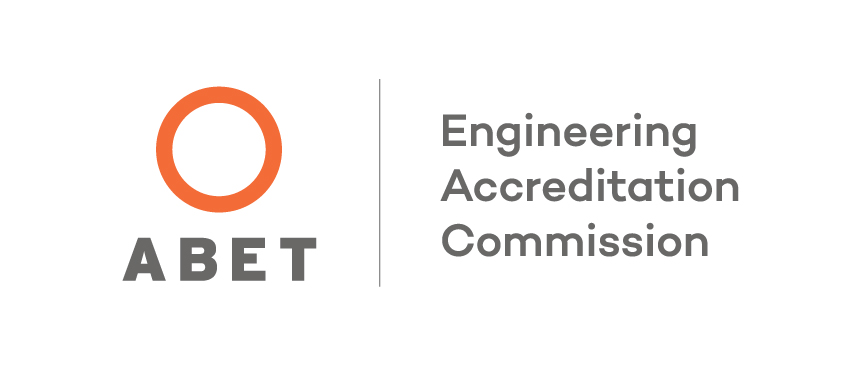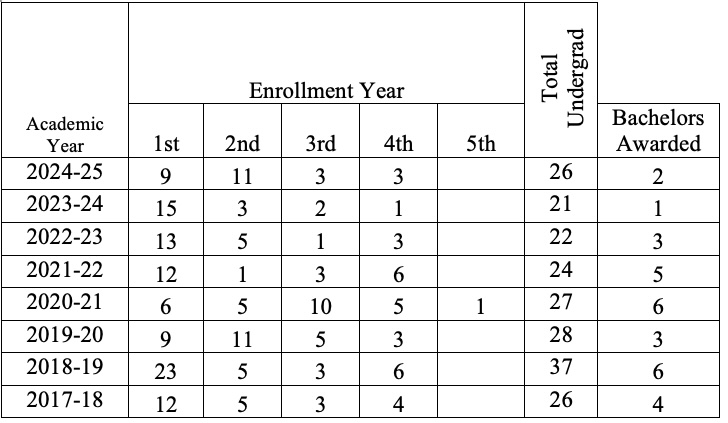Engineering Physics
Our Engineering Physics Program, accredited by the Engineering Accreditation Commission of ABET, www.abet.org, explores how engineering and physics come together to find solutions to real-world problems. The program is intended for students who want a solid foundation in physics and a rigorous set of engineering courses that will allow them to pursue an engineering career in the diverse fields of electrical and mechanical engineering, or an advanced degree in engineering. In addition, the program provides students interested in other specialized fields of Engineering a clear track to pursue a 1-year Masters in Engineering or a 2-year, research-based Masters in Science at the University of Cincinnati, including:
Why ABET accreditation is important
ABET accreditation provides assurance that the accredited program meets the quality standards of the profession for which that program prepares students. Furthermore, graduates of ABET accredited Engineering Programs are eligible to sit for the Fundamentals of Engineering (FE) exam, the first step in obtaining licensure as a Professional Engineer (PE). Simply put, ABET means quality! Click on the ABET logo below for additional information.
What is Engineering Physics?
Engineering Physics combines courses in physics and mathematics with several diverse courses in engineering. Serving the foundation of the program is a set of courses that provides a fundamental understanding of traditional topics in physics including the motion of solid bodies, sound, fluids, electricity, magnetism, and the interaction between light and matter. These “foundational” courses describe how theories about natural phenomena are deduced from experiments and observations, develop the mathematical formalism through which these theories are expressed, and present techniques for using this formalism to describe and analyze systems. Overarching these “foundational” courses are a set of “engineering” courses that focus on the application of scientific principles toward the design and construction of structures, materials, devices and systems that serve an intended function. A senior capstone experience provided through a two-semester sequence teaches the product development process typically utilized in the engineering community and enables students to experience the process from idea conception through production.
Why Engineering Physics at Xavier?
The engineering physics program provides students with a strong foundation from which to pursue an engineering career or an advanced degree (PhD or Masters) in engineering, doing so from the advantage of a small, liberal arts setting that is advantaged by:
- Hands-on, project based curriculum
- State of the art testing and measurement equipment, and research labs
- Small classes
- Close interaction between faculty and student
- University specific-values\community service
- Connection with the local industries
Career Options
Many employers value the unique problem solving approach of Engineers with rigorous physics background (those are Engineering Physicists!).
Engineering Physics graduates tend to work on cutting edge ideas in science and technology, with opportunities in both industry and academia. Career options after graduation might include aerospace, biomedicine, renewable energy, quantum information, semiconductor electronics, microwave engineering and wireless systems, and materials development. Careers could also include intellectual property and patent law, systems engineering teaching, and management in a technical field.
- Designing and manufacturing of electronic devices and integrated circuits
- Telecommunications and networking
- Robotics and manufacturing systems
- Avionics and transportation
- Biotechnology and biomedical devices
- Computer and information technology
- Intellectual property and patent law
- Research and development in national and private industry laboratories
- Teaching
- Sales, marketing and management in the above areas
Engineering Physics majors are also very well prepared to pursue advanced degrees (Masters or PhD) in engineering, bio-medicine, physics and other technical disciplines. Since engineering programs typically offer scholarships and teaching/research assistantships, the total cost can be comparable to or less than that of obtaining a traditional 5 year engineering degree.
Program Educational Objectives
Within a few years of graduation, the graduates of the Engineering Physics program are expected to:
- Demonstrate technical proficiency in engineering fundamentals either in a professional engineering setting or during pursuit of advanced engineering degree.
- Stand out professionally through effective communication ability, creative engineering problem solving, and commitment to collaboration, teamwork, and lifelong learning, and;
- Contribute to the engineering profession and to society in a manner consistent with the Jesuit traditions, which include leadership and service with commitment to ethical and social responsibilities.
Student Outcomes
Student who graduate with an Engineering Physics degree will have:
- An ability to identify, formulate, and solve complex engineering problems by applying principles of engineering, science, and mathematics
- An ability to apply engineering design to produce solutions that meet specified needs with consideration of public health, safety, and welfare, as well as global, cultural, social, environmental, and economic factors
- An ability to communicate effectively with a range of audiences
- An ability to recognize ethical and professional responsibilities in engineering situations and make informed judgments, which must consider the impact of engineering solutions in global, economic, environmental, and societal contexts
- An ability to function effectively on a team whose members together provide leadership, create a collaborative and inclusive environment, establish goals, plan tasks, and meet objectives
- An ability to develop and conduct appropriate experimentation, analyze and interpret data, and use engineering judgment to draw conclusions
- An ability to acquire and apply new knowledge as needed, using appropriate learning strategies
Student Enrollment and Graduation Data
Course Sequence
The four-year course sequence for the engineering physics major can be found on the Xavier Engineering Physics Fact Page
Related Minors
- Electronics Engineering
- Mathematics Minor - can be satisfied with 6 additional credit hours beyond program requirements.
- Applied Mathematics Minor - can be satisfied with 3 additional credit hours beyond program requirements.
- Statistics Minor - can be satisfied with 9 additional credit hours beyond program requirements.
- Computer Science Minor - can be satisfied with 9 additional credit hours beyond program requirements. CS department will substitute ENGR354 (microprocessors) for a program elective.

